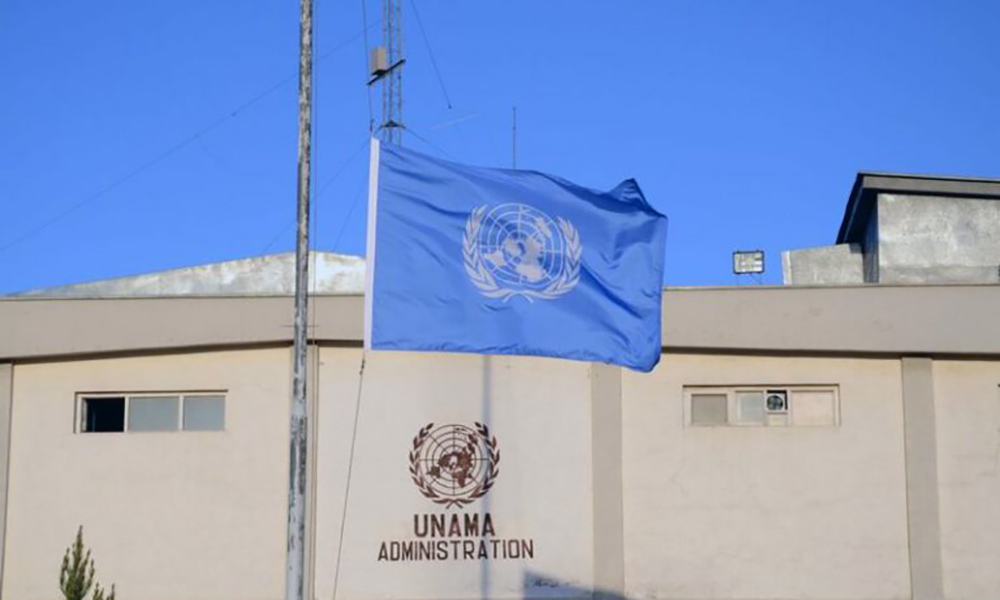Latest News
UNAMA’s criticism of Afghanistan’s morality ministry ‘unfounded’, says IEA
The report, titled ‘De Facto Authorities’ Moral Oversight in Afghanistan: Impacts on Human Rights’ was published Tuesday and also contained the Islamic Emirate’s response to the UN’s findings.

In response to UNAMA’s report on rights violations by the ministry for the propagation of virtue and prevention of vice and complaints, the Islamic Emirate of Afghanistan (IEA) said Wednesday the claims by the organization were unfounded and that all rights were respected in accordance with Sharia.
Zabihullah Mujahid, the IEA’s spokesman said that the rulings recommended by this ministry are well-known Islamic rulings.
He said UNAMA was trying to compare Afghanistan’s policies against those of the West, which was not “the right thing to do”.
He added that under the IEA, the rights of all citizens are secured in accSharia.
“All men and women are dealt with according to Sharia, Sharia rulings are enforceable as laws, and in this case, no one is oppressed or violated,” said Mujahid.
Mujahid added that Afghanistan should be examined as an Islamic entity and the demands of the nation, the absolute majority of which are Muslims and who have made great sacrifices for the establishment of the Islamic system, should be taken into consideration.
At the same time, the spokesperson of the US State Department, said in response to the UNAMA report, that the actions of the ministry for the propagation of virtue and prevention of vice weaken the prohibition of denying the human rights of all Afghans.
Matthew Miller said that the Islamic Emirate knows that its relations with the international community are fully related to its treatment of the Afghan people.
He said in a press conference in Washington on Tuesday that the United States is closely monitoring the behavior of the Islamic Emirate towards the people of Afghanistan, especially the women and girls of this country.
He said that America expects the Islamic Emirate to pay attention to the concerns of its people and the international community in this regard.
“As we have told representatives of the Taliban (Islamic Emirate) in private and public meetings, the relations of this group (Islamic Emirate) with the international community completely depend on its behavior. We have made this very clear.”
This is while the UN said Tuesday the ministry for the propagation of virtue and prevention of vice were violating human rights and fundamental freedoms and that decrees and methods used to enforce rules were contributing to “a climate of fear and intimidation among segments” of society in Afghanistan.
The report, titled ‘De Facto Authorities’ Moral Oversight in Afghanistan: Impacts on Human Rights’ was published Tuesday and also contained the Islamic Emirate’s response to the UN’s findings.
The report stated: “As part of this engagement, Afghanistan’s de facto authorities were invited to provide factual comments on the content of the report.”
According to the report, the ministry has enforced decrees that have a disproportionate impact on women and girls, like dress codes, segregated education and employment, and having a male guardian when they travel.
“The punishments attached to non-compliance with instructions and decrees are often arbitrary, severe and disproportionate,” the report read.
The report meanwhile stated that since the ministry’s establishment, its scope of responsibility has continued to expand.
“In addition to intensifying monitoring of compliance with existing policies, it has introduced new instructions and expanded into new areas of enforcement,” UNAMA stated.
Related Stories:
UN report claims Afghanistan’s morality police are violating human rights
UNAMA issues latest rights report, notes ongoing challenges for women, girls and media
